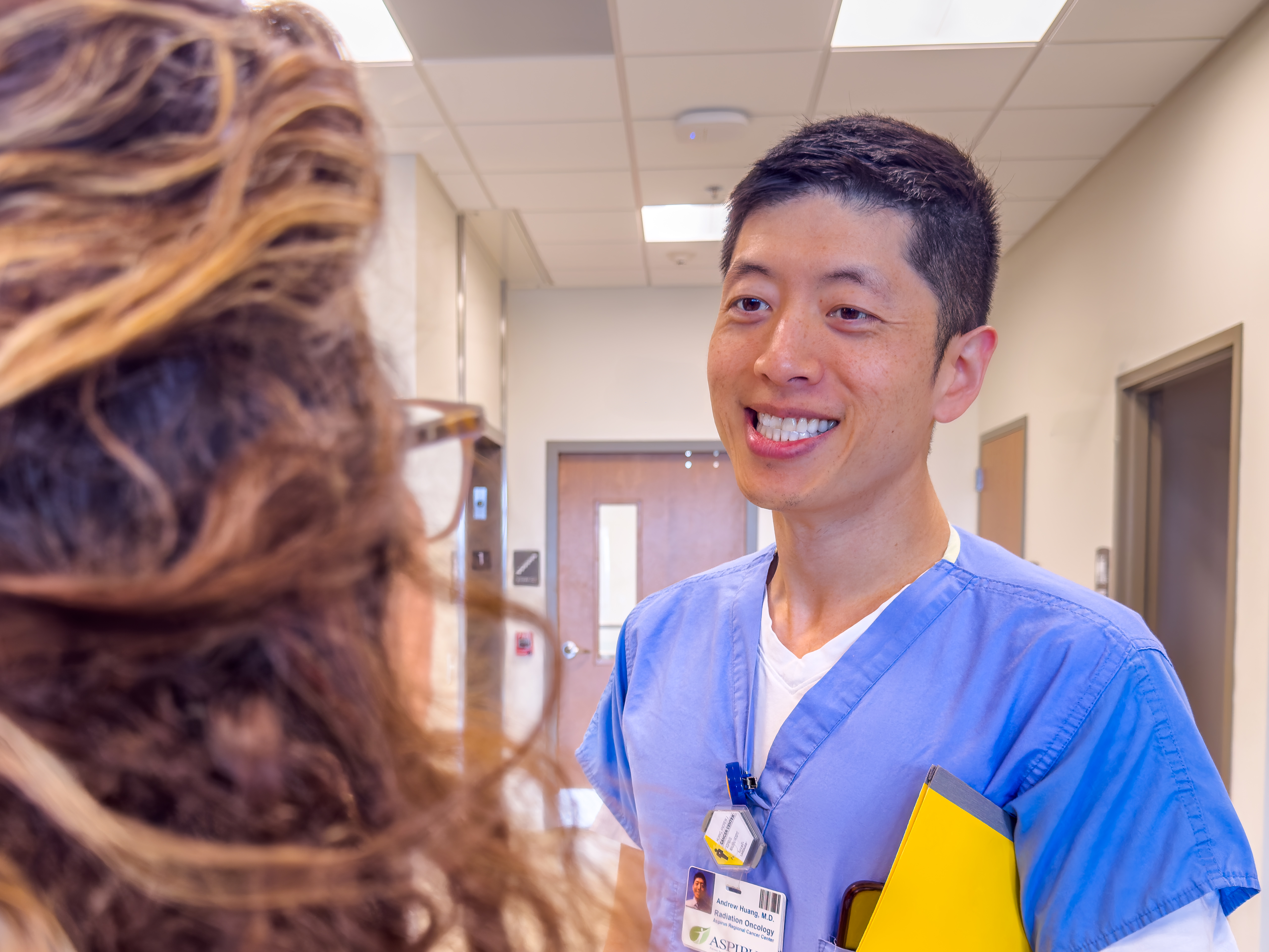World Cancer Research Day
How Cancer Research and Personalized Medicine Bring Hope to Patients
9/24/2025

Dr. Andrew Huang, Aspirus Radiation Oncologist
Cancer remains one
of the leading causes of death worldwide, but research is changing the outlook
for patients. On World Cancer Research Day, September 24, Aspirus Health is
highlighting the impact of clinical trials and personalized medicine on
improving cancer outcomes.
Andrew
Huang, MD, Radiation Oncologist at Aspirus Health, says cancer research is
transforming how care is delivered. “Personalized medicine is revolutionizing
cancer care because we are able to escalate or de-escalate the severity of
treatment based upon a patient’s individual cancer,” Dr. Huang explained.
That personalization
is already changing treatment approaches across several cancer types,
including:
- Breast cancer:
Genomic scoring helps determine whether chemotherapy will benefit a patient,
and molecular profiling guides systemic therapies such as immunotherapy or
hormonal therapy.
- Prostate cancer:
Patients are being enrolled in clinical trials to test how genomic markers can
guide hormonal treatment intensity.
- Lung cancer:
Molecular profiling helps doctors select the most effective oral or intravenous
medications alongside surgery or radiation.
Today, most cancer
patients are benefiting from personalized treatments. For nearly every patient
with stage four cancer, tumors are sent for molecular profiling to identify
mutations that might be targeted with modern pharmaceuticals.
In the short term,
patients often see benefits such as fewer side effects or reduced chances of
recurrence. Over the long term, the focus is on improving quality of life by
reducing the intensity of treatment when possible. “Surgery, chemotherapy, and
radiation can all have harmful effects,” Dr. Huang said. “By reducing the
severity of treatment, we can give patients a better quality of life after
they’ve been cured of their cancer.”
Research remains
essential to advancing cancer care. “While cure rates continue to improve, many
patients still face long-term side effects,” Dr. Huang noted. “Our goal is to
keep pushing forward until more patients are cured and those side effects are greatly
reduced.”
Aspirus is
recognized nationally for its clinical trials program. The Aspirus Cancer
Center in Wausau is among the highest-accruing clinical trials hospitals in the
country, as recognized by the National Cancer Institute.
To learn more and
explore clinical trial options available in our region, visit www.aspirus.org/clinical-trials.

Back to all Posts